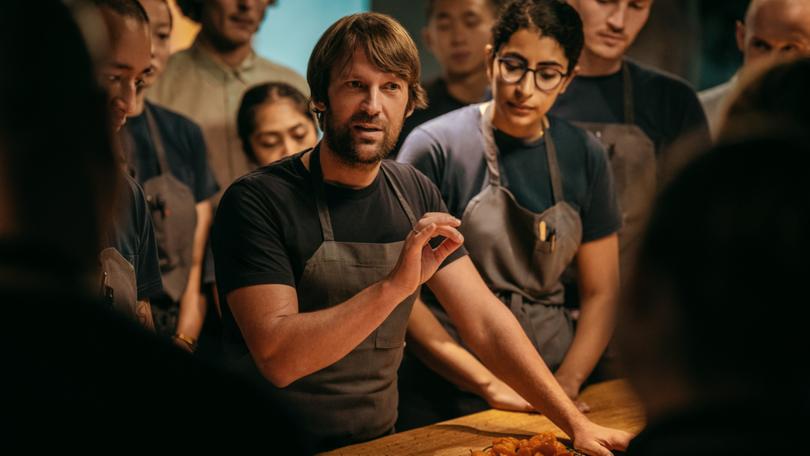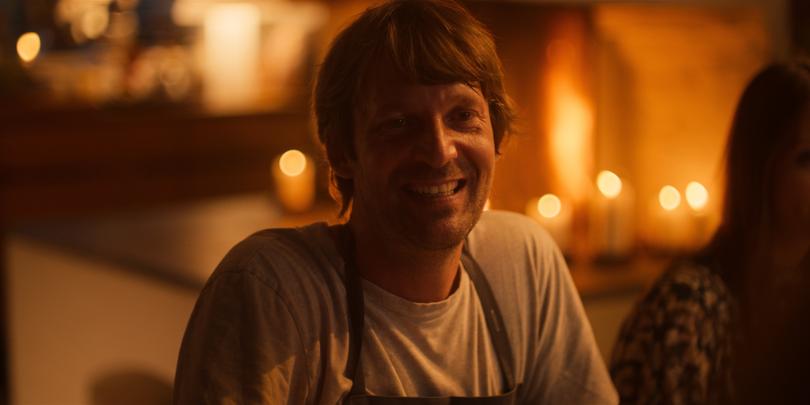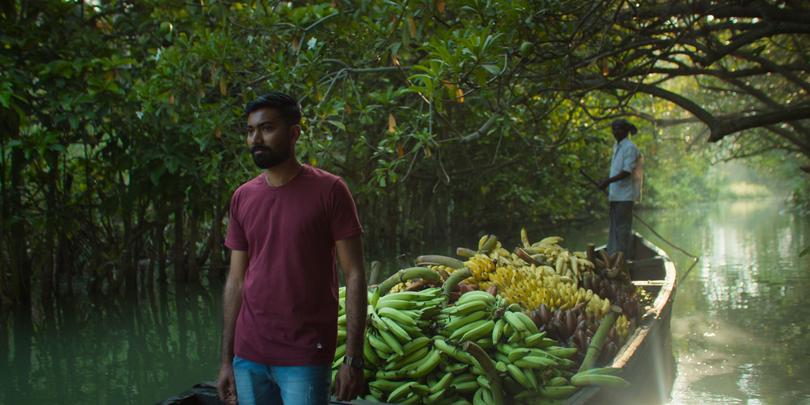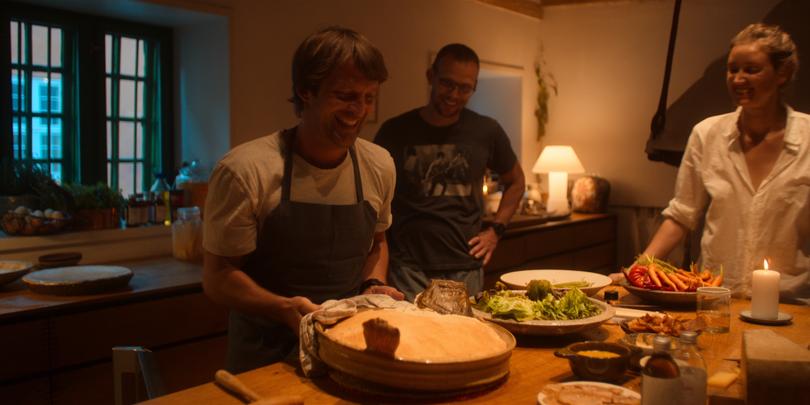Noma chef Rene Redzepi is taking a different look at food in streaming series Omnivore
You can’t get a booking at world-famous chef Rene Redzepi’s restaurant, but you can watch his new TV series that explores the core ingredients that make up the world’s diets, and how they go from farm to table.

A meal at the globally renowned Copenhagen restaurant Noma does not come cheap. For one person, the cost is $860, before drinks. And that’s only if you manage to secure a booking, which you won’t.
Noma is probably the most famous fine diner in the world, acclaimed for its innovative dishes, commitment to local ingredients and playful flavours. Which makes Rene Redzepi one of the most famous chefs in the world.
If you were paying attention in the third season of The Bear, you may have spotted Redzepi playing himself in a lightning-quick cameo. Because, of course, The Bear’s fictional wunderkind chef, Carmy, has worked at Noma.
Sign up to The Nightly's newsletters.
Get the first look at the digital newspaper, curated daily stories and breaking headlines delivered to your inbox.
By continuing you agree to our Terms and Privacy Policy.Redzepi’s profile was on the rise around the same time the wider culture took notice of individual chefs. TV shows such as MasterChef, Top Chef and more had become a huge genre and the producers were always on the hunt for screen talent.
They came for Redzepi, offering him everything from travelogue-style programs or cooking shows or a judge on a competition series.
“It never amounted to anything but it did make me think, ‘What would I do if I was ever to do TV?’,” Redzepi told The Nightly.

The answer to that question is Omnivore, an eight-episode series in which Redzepi explores the ingredients that form the foundation of so much of the world’s diet, including rice, corn, coffee, tuna, salt and bananas.
While Redzepi said Omnivore stands on the shoulders of landmark series such as Anthony Bourdain’s No Reservations or Chef’s Table, the inspiration was David Attenborough.
His collaborator, producer and Noma chief operations officer Australian Ben Liebmann, explained, “I remember the first time Rene and I met, which was 2013, he asked the question, ‘What if we were able to look at the planet through the food system in the way Attenborough looks at it through the animal kingdom’.”
Omnivore takes viewers on an up-close exploration of food – how it’s grown, harvested, transported, packaged and used, and the people at every point in the process. It traverses through the fish markets in Japan, salt lakes in France, rice paddies in Asia and all over the world.
The series wants to give viewers a deeper appreciation and connection to what they’re eating every day.
“How we grow food is how healthy our planet is, or how unhealthy it is,” Redzepi said.
“You could say the same about how we eat. Are we eating well or not well dictates the health of us.
“We wanted something with a greater scope, inspired by the fact that we believe food is so important and that we wanted something that showcased this level of respect, dedication and care that we have for it.”

Because of its globe-trotting nature, Omnivore’s production took three to four years, beset by surprises such as political unrest in Ethiopia, famine and floods.
“Rene talks about when asparagus is in season, you pick them. In the case of making a show like this one, if you miss the moment with the asparagus, you have to wait another 12 months,” Liebmann recalled.
Seasonality is just one of the things modern consumers have chosen to ignore. We expect every ingredient to be available whenever we want them, conveniently on the supermarket shelf, maybe out of long-term storage, maybe imported from halfway around the world.
Redzepi said we’re more disconnected from the origins of what we eat than we ever have been.
“Without a shadow of a doubt,” he contended.
“We’re very connected when it comes to digital and the latest dance craze or whatever.
“But in terms of food, where it comes from, what’s the season, who’s behind them, and what’s the impact? We have no clue anymore. And that is a great shame.
“We are hoping that the (show) will ignite curiosity for people that watch it, like, ‘Wow, I can’t believe that coffee is such a magical thing’. You can get it for a dollar a cup but it’s not just filtered water through beans.
“For you to drink that half a cup, 30, 40 or 50 people have touched (those beans). It’s mind-blowing and perhaps we’ll think of it more.”

A cup of instant coffee may be less than a dollar but you’ll often hear people grumble about the rising cost of take-away brew. But ask any barista or someone in the industry and they’ll tell you coffee should cost way more than what people are paying.
And because the consumer is not paying that extra cost, someone or something else is. Everything comes at a cost, Redzepi said.
“It could be at a farm somewhere, where people are earning less, or it could be a tree or a lake or a bush that takes a toll because we need cheap peanuts for Mars Bars. Very rarely do you see food be priced at what it should really be costing.”
That’s not a justification for Noma’s menu price, which is obviously a specific experience. But it is a challenge to the viewer to re-consider what and how they’re eating.
“I truly believe food is the most important thing on Earth and we should all discover that because it would make us healthier and it would make the planet healthier if we start eating better,” Redzepi said.
“It is very simple to say these words and, of course, there are many great challenges in it, but if you at least realise that you should pay more attention and care for what you eat, that’s a step forward in the right direction.”
Omnivore is streaming on Apple TV+ from Friday, July 19

